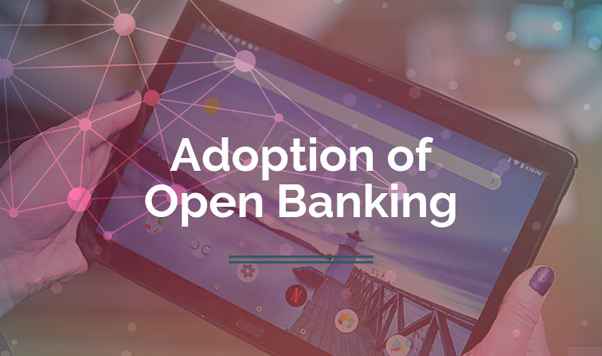Open banking and its boost to innovation
Updated On : April 2019
The financial banking dynamics are changing rapidly. There is considerable customer behaviour shifting, regulatory changes and more importantly, banks are facing a threat from digital ecosystems like Google, Apple, Facebook and Amazon (GAFA), with a constant quest for new business models. In such a scenario, one concept that is gaining ground and is inevitable in the future is open baking.
Open banking, also known as, "open bank data", is a collaborative model where banking data and financial information is shared electronically and securely and only under conditions that the customers agree to. Application programming interfaces (APIs) allow third parties to access financial information efficiently for the development of new apps and services which will deliver enhanced capabilities to the marketplace. It is a secure way of sharing financial information with other financial institutions, which also paves the way for new products and services to help customers and small to medium-sized businesses to get a better deal. Open banking could also give a more detailed understanding of accounts, and help a customer find new ways to grow his money.
Open banking APIs boost innovation and collaboration, with extended banking ecosystems seeking to enhance a consumer's lifestyle with more than just financial services. Keeping customer consent a crucial part of the strategy, open banking seeks to offer improved value to the customer which encourages the customer to allow sharing of their data.
The institutions that understand and leverage the innovative potential of open banking develop on their existing customer relationships and come up as winners. First mover banks and credit unions could also become leaders by giving customers choice and control of their own data in an era of increasingly personalized financial services.
Open banking efforts are not only a huge deal for banks, regulators and financial start-ups but it is also a win-win for consumers. Going by the book, the potential benefits of open banking seem to be huge with better customer experience, more revenue streams, and a sustainable service model for underserved markets.
Open banking is boosting innovation in the banking industry. Some examples are
Open banking APIs can help to switch from using one bank's checking account service to another. It can also identify the best financial products and services for customers like a new savings account which would earn a higher rate of interest rate or a different credit card with a lower rate of interest, by just looking at the customer's transaction data
For lenders, the use of networked accounts will help in getting a more accurate picture of a customer's financial status and risk level to determine the loan terms. At the same time, customers can assess their own finances before taking on debt.
An open banking app for homebuyers could automatically calculate what customers can afford based on the information in their accounts
An app with voice commands can help visually impaired customers understand their finances better
Open banking can help smaller businesses save time with online accounting and also assist fraud detection companies to monitor customer accounts better and identify potential security issues
Open banking APIs give apps direct access to the exact pieces of data needed for analysis without revealing sensitive customer information
Benefits of Open banking
Customers can transfer funds easily and compare product offerings to select the ones that best meets their needs in the most cost effective way
Third party services can help save on hidden bank charges, borrow easily, and pay effortlessly
Open banking improves customer experience. It pushes bigger, established banks to be more competitive with smaller and newer banks, which results in lower costs, better technology, and better customer service
As per Open banking regulations, banks have to publish transparent and unbiased information, both online and inside their branches, which help customers measure their service quality and also pushes banks to provide the best customer service possible
In case of unforeseen overdrafts, banks have to inform customers and allow them a grace period to avoid overdraft charges
Customers have a clearer view of their finances as everything is available in a single view with Open banking. This helps the customer to budget, find better deals, and opt for suitable products and services
Customers could choose to give a regulated price comparison app or website secure access to their bank account information to get analysis and recommendations based on what they actually spend
The positive effects of Open banking
There will be pressure on banks to improve the services they offer instead of letting a third party control the messages their customers receive.
With open APIs, app developers will be able introduce more helpful tools to manage the customer's spending.
With access to all information instantly, lenders will be able to streamline lending making it a quick and efficient process.
Business loans become hassle free with lenders being able to pull all the data they need from a customer's bank, credit card issuer, and accounting system.
Integrated systems can automatically update transactions making it cheaper for consumers and businesses.
Banks and third-party apps can help fight fraud and waste by scanning through transactions.
Innovative start-ups will bring in innovative services by introducing newer and better ways of working in the marketplace.
Coming to the issue of privacy, third-parties, banks and APIs use strong security measures to protect confidential information. Open banking initiatives require customers to approve when and how financial institutions can share their data with specific parties. However, a concern is that any authorized sharing also puts a customer's information into somebody else's hands.
Finally, while Open banking promises to benefit end users and also foster innovations and new competition between banks and nonbanks, it is also poised to bring in an entirely new financial services ecosystem, in which a bank's roles may shift significantly.


Comments :